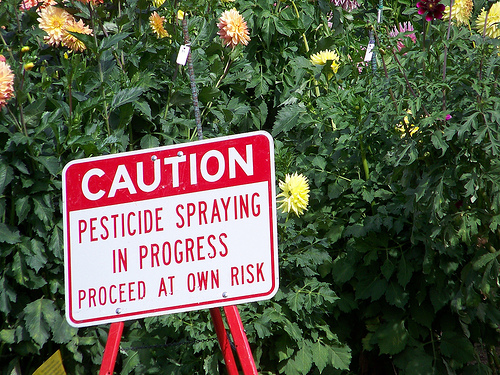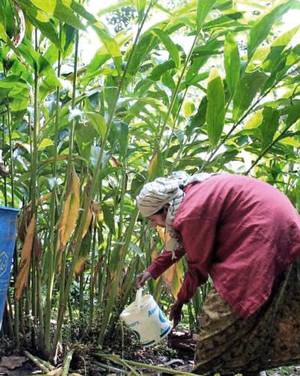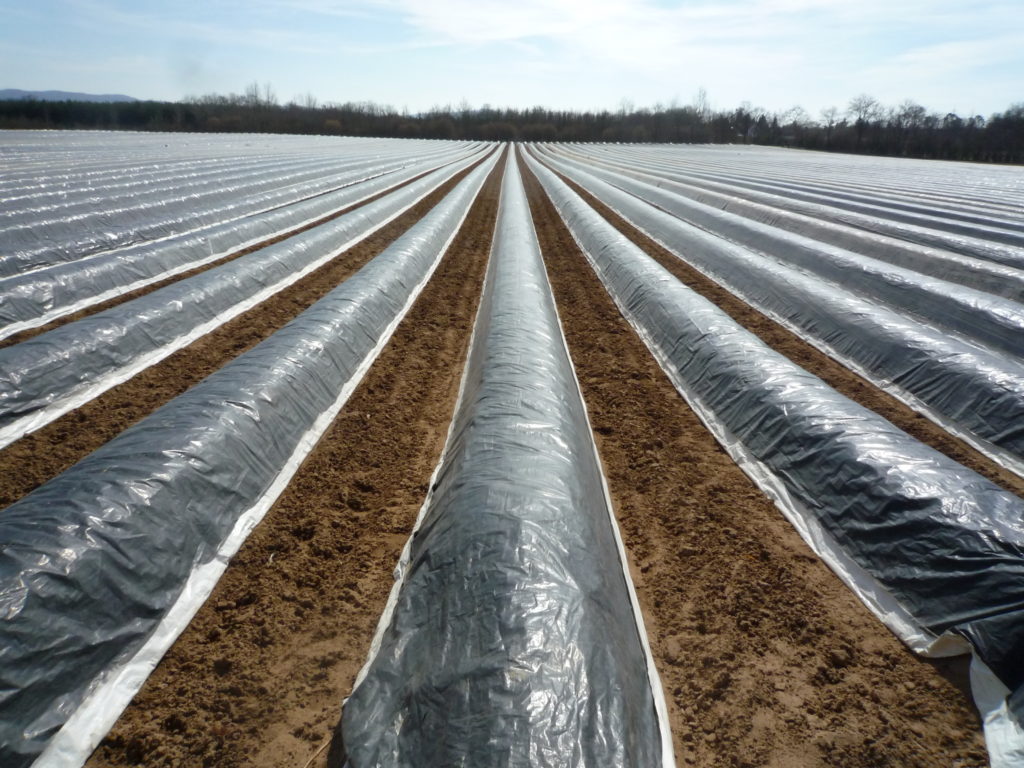While crop protection is a significant focus against the damaging insects and weeds, farmers use pesticides to manage agricultural pests.

The term pesticide covers a wide range of compounds including insecticides, fungicides, herbicides, rodenticides, larvicides, and others. They kill unwanted pests, but also cause many human deaths each year and badly affect the crops.
In the fight against these pests who have now got immune to most of the pesticides, farmers have been using an excess amount of pesticides to kill the pests. But is this the solution? Will excessive pesticides kill the pests and keep the crops protected?
Well, the answer is definitely NO!
The excess use of pesticides is not only reducing the nutrient value of the crop but also impacting export and trade.
Referring to a news article published in ‘The Pioneer’, Kahan Singh Pannu, The Managing Director of Tandrust Punjab Mission said that “Punjab has been dominating the Basmati rice exports to the world but has registered a decline in exports to European Union, USA and other world markets due to excessive use of pesticides”.
Another news article says that:
Maharashtra consumed the most chemical pesticides in 5 years: Report
Pesticide consumption in India grew by 13.07 percent in India between 2014-15 and 2017-18
By Shagun Kapil; Friday 20 March 2020

Maharashtra consumed the most chemical pesticides in India in the past five years at 61,138 tonnes, followed by Uttar Pradesh (UP) at 52,747 tonnes and Punjab at 29,394 tonnes, according to non-profit Pesticide Action Network (PAN).
Maharashtra increased its pesticide consumption by 35.6 per cent between 2014-15 and 2018-19, while UP reported an increase of 14.17 per cent.
Pesticide consumption across the country grew by 13.07 per cent between 2014-15 and 2017-18, according to the report by PAN. Biopesticides accounted for only 10 per cent of the total pesticides consumed, on an average.
The country used 69,282 tonnes of pesticides (chemical and biopesticides combined) in 2017-18, a sharp increase from the 61,273 tonnes used in 2014-15 and 16 per cent higher than pesticides used in 2015-16.
Check pesticide use on basmati crop, state told
Centre steps in as EU, Saudi Arabia raise concern
Ruchika M Khanna │Tribune News Service Chandigarh, January 1, 2019
The falling exports of basmati because of presence of higher than permissible limit of pesticides has prompted the Centre to step in. The Ministry of Agriculture and Farmer Welfare is asking basmati growing states, including Punjab, to take steps to reduce deposit of harmful chemicals on rice, besides initiating steps to ban specific pesticides.
India is the top exporter of basmati in the Rs 26,000 crore global market. But high pesticide content has hit exports hard. Figures show that India exported 26.28 lakh tonnes during April-November 2017, as compared to 24.90 lakh tonnes in the first eight months of the ongoing fiscal.
Export to Saudi Arabia, the second biggest market for Indian basmati, has also taken a hit after Riyadh insisted that it would not accept basmati having higher than specified limits of pesticides, as followed by the US and EU.
Cardamom under threat
Giji K. Raman │December 09, 2018

Cardamom farmers in Idukki district are resorting to indiscriminate use of multimolecule pesticides as a measure of resistance to insecticides, posing severe threat to the cardamom ecosystem. Application of these pesticides is more prevalent after the ban on red-labelled pesticides such as furadan and phorate, which were used widely in cardamom plantations earlier.
Sources say multimolecule pesticides have components of insecticide, fungicide, flowering hormone and micro-nutrient chemicals.
They are highly toxic and leave a long-term impact on the ecosystem by polluting air, soil and waterbodies in the riverine.
In many instances, the farmers themselves add the flowering hormone and micronutrients in the toxic chemical they prepare.
These multimolecule pesticides are more dangerous and have more carcinogenic chemical elements than single-molecule pesticides, according to M. Murugan, Professor and Head, Cardamom Research Station (CRS), Pampadumpara.
He says the pesticides are applied, especially during the flowering season, once in 24 days, in addition to the chemical fertilizers for plant growth.
What are we doing to our lands and soils? Removing their nutrient value completely by massive chemical flooding of the earth! There needs to be some serious steps taken against the use of pesticides while battling the pest infestations.
What can be an eco-friendly alternative to these toxic pesticides and thereby repelling the pests?
The unique product CombirepelTM manufactured by C Tech Corporation is an anti-insect, anti-animal, anti-bird aversive which repels pests.
CombirepelTM works on the mechanism of repellency. It is an extremely low concern, low toxic, low hazard, non-carcinogenic, and non-mutagenic pest aversive. It does not kill or cause harm to the pests as well as to the environment which indirectly helps to maintain the ecological balance.
CombirepelTM is available in the form of the masterbatch, which can be incorporated into polymeric applications like pipes, agriculture mulch films, floating row covers, greenhouse films, etc. used for crop cultivation purposes, etc.

The product available in the form of liquid concentrate can be mixed in paints in a predetermined ratio and be applied to the fences in the garden and farms to keep the pests away from these places.
Our product in the lacquer form can be applied topically on the applications. The lacquer is compatible with most surfaces like wood, concrete, metal, polymer, ceramic, etc. The lacquer can be applied on the already installed pipes in the fields or garden, fences around farms and gardens, and walls of the warehouses where the agricultural products are stored, thus protecting it from damage.
Our user-friendly sprays can be sprayed anywhere to repel pests. The product is compatible with all types of surfaces and can be used by anyone. The CombirepelTM pest repellent spray is safe for use in farms and warehouses.
CombirepelTM is thermally stable and does not degrade on exposure to heat and sunlight. It does not kill or harm the insect but repels them. It does not volatilize and does not degrade the soil. It is RoHS, RoHS2, RoHS3, EU BPR, REACH, APVMA, NEA compliant and FIFRA exempted.
Contact us at technical.marketing@ctechcorporation.com to keep the pests away and decrease the use of pesticides.
Also, visit our websites:
http://www.ctechcorporation.com/
http://www.rodrepel.com/
http://www.termirepel.com/
http://www.combirepel.com/
Follow our Facebook pages at:
1] https://www.facebook.com/Combirepel-411710912249274/
2] https://www.facebook.com/Termirepel-104225413091251/
3] https://www.facebook.com/Rodrepel-120734974768048/
Follow us on our Twitter pages at:
1] https://twitter.com/rodrepel
2] https://twitter.com/termirepel
3] https://twitter.com/combirepel
